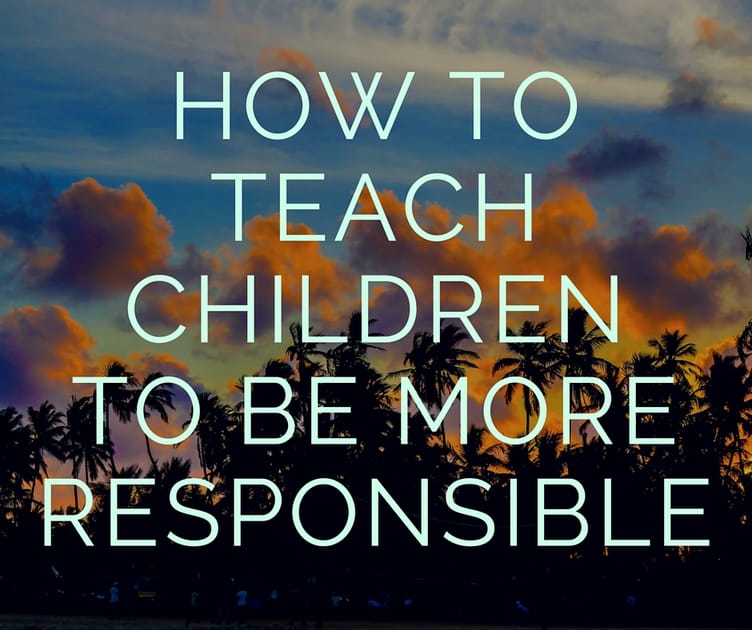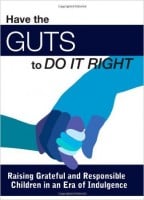
Teaching children responsibility is one most important life goals you have as a parent to help prepare them to be successful adults. But, as you’re well aware, being a parent can be hectic. During these times, focusing on what matters most may feel challenging.
While even many adults don’t understand the virtue of responsibility, not for themselves, their finances, or anyone else, teaching your child how to be accountable doesn’t have to be impossible. Your child can learn to be a person of integrity and reliability well before adulthood.
Parenting may be the most demanding job you’ll ever have, but the rewards are incredible, especially when you’re able to see that you’ve raised responsible and caring children. Now is the best time to embark on a journey to collect as much parenting knowledge as possible.
The following techniques will help you raise your children to be responsible and caring adults:
1. Treat your child with respect and care. All children deserve to feel loved and valued. However challenging your child may be, remind yourself that they’re “works in progress” and may make many mistakes along the way. Being tactful, caring, and respectful toward your children is like giving your garden sunshine, water, and fertilizer.
2. Reinforce the positive. We all want to be recognized and noticed for what we do well; this is especially true for children. Be as specific as possible whenever you provide your child with positive feedback. Making statements such as “I like how you cleaned up all the crumbs from the table.” or “Wow, that was wonderful how you helped fold laundry without being asked!” while maintaining eye contact will help them learn the importance of performing a job well. In turn, your child will become more responsible. Encourage your child’s positive behavior consistently.
3. Share household tasks and chores. It’s common for children who eventually grow up to become responsible adults to have had guidance during their childhood. By completing household tasks, for instance, they’ve been allowed to contribute to the household in some way.
Though children should always be allowed to be children as they grow up, teaching them responsibility early on is equally important. One of the best ways to accomplish this is through assigned chores. Having duties around the house, and contributing to the family, can help your kids learn about being accountable.
Studies show that giving children tasks to complete at a young age also helps create a solid work ethic while developing self-reliance and other vital life skills. Chores teach kids about respect. They learn to respect what their parents do for them and their belongings and appreciate their own ability to contribute in a meaningful way.
4. Teach money management skills. One of the greatest difficulties for adults is managing money wisely. To develop good habits, children must have the opportunity to learn and practice them before entering adulthood. Giving your child an allowance is the first step to teaching them how to be financially responsible. Children should complete their chores just as they will later in life while learning how to earn money.
Teach your kids about responsibly saving and spending money and allow them to make their own decisions. In addition to learning to value and manage money, they’re also learning to be independent and rely on themselves over time. This is when children can safely make financial mistakes and learn how to handle them to benefit themselves. This is also an excellent time to teach your children about charity so that as adults, they’ll know how to be responsible for themselves and help others.
5. Allow your child to face natural consequences and learn from mistakes. Modern parenting can encourage coddling and overprotecting your child in ways. But having some independence is where they can begin to practice self-reliance. Children learn responsibility by facing the consequences of their actions.
As long as the consequences aren’t harmful, allow your kids to experience the natural consequences of their behaviors. Automatically triggered consequences can teach valuable lessons about the importance of follow-through and responsibility. For example, if your child doesn’t want to wear a warm coat, they may experience the natural consequences of being chilly on a winter day. The likelihood of skipping out on choosing warmer clothing in the future will decline, and taking responsibility for their comfort level will increase.
Try not to be afraid to let your child make their own decisions when appropriate. Learning comes from making mistakes; it’s better to make those mistakes as a child when the consequences aren’t as severe; this also helps create resilience and perseverance.
6. When teaching your child a new behavior, give clear, simple instructions. Be specific about your expectations. Demonstrate what you’ve asked your child to do so they can see how it is done correctly. Next, allow your child to practice what you’re demonstrating. Praise all of their efforts, no matter how small; avoid criticism or expecting perfection. Setting your standards too high can “encourage” your child to resist your future requests. Show support by smiling and being positive in your approach. Remember that “Rome wasn’t built in a day,” and these things take time. With younger children, offer guidance and build responsibility by staying close by as they learn and practice new behaviors.
7. Don’t let your child off the hook if they misbehave at school. You may want to take the fall to protect your children, but doing so prevents them from learning the consequences of their actions. At those times, also try to refrain from showing anger and disappointment. Instead, provide encouraging words about completing any consequence the school issues them. Let your child know that you have confidence that they’ll get through the situation and move forward to have a great school year.
8. Give your child some space and freedom. Try not to be afraid to let your child spend time alone or to let them make decisions about their time, hobbies, and friends. Moreover, try to give them the independence and space they need to grow into responsible adults who know how to care for themselves.
Raising responsible children requires effort and consistency, but it doesn’t have to be complicated. Though many adults worldwide don’t know the true meaning of responsibility, this doesn’t have to be the case for your children. Teach them to contribute through age-appropriate chores; they’ll better appreciate what you do for them and what work is. Give your kids a weekly or monthly allowance when they’ve completed their tasks and allow them to spend it how they wish. Whether spenders or misers, they’ll learn financial lessons that will carry into adulthood. Allow them the independence to learn to entertain themselves, make their own decisions, and live with those decisions’ consequences. Provide your children with the basic foundations of responsibility in childhood while making them feel loved and valued, and you’ll have taught them to be the adults the world needs.


